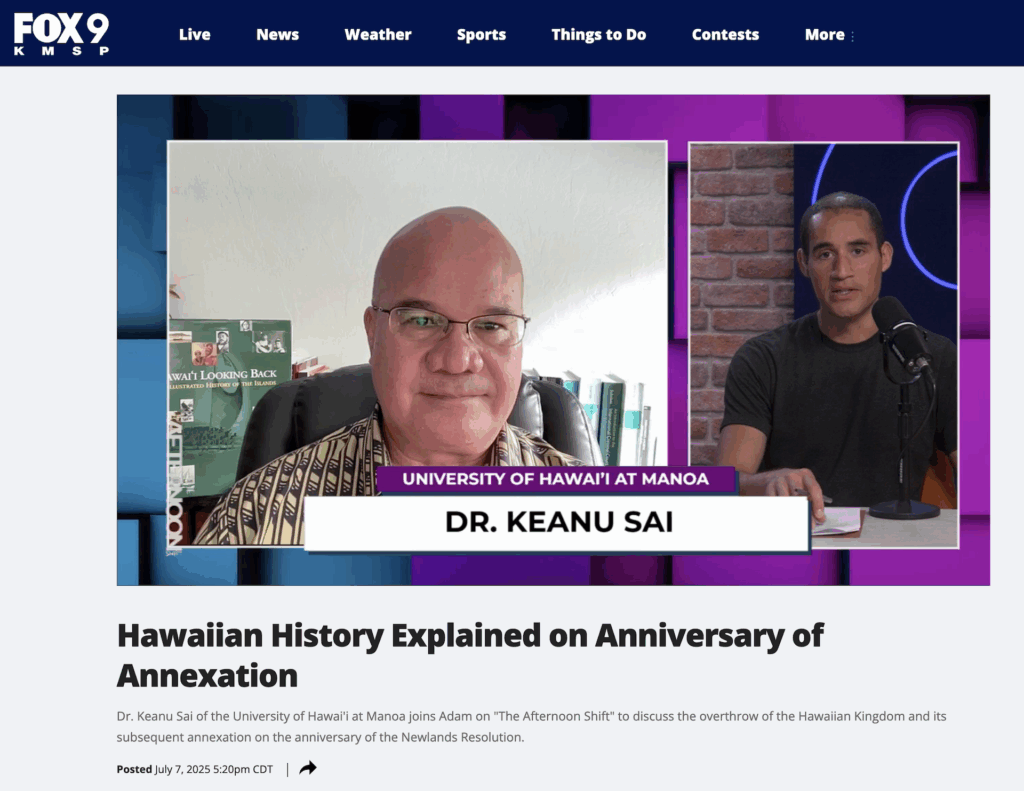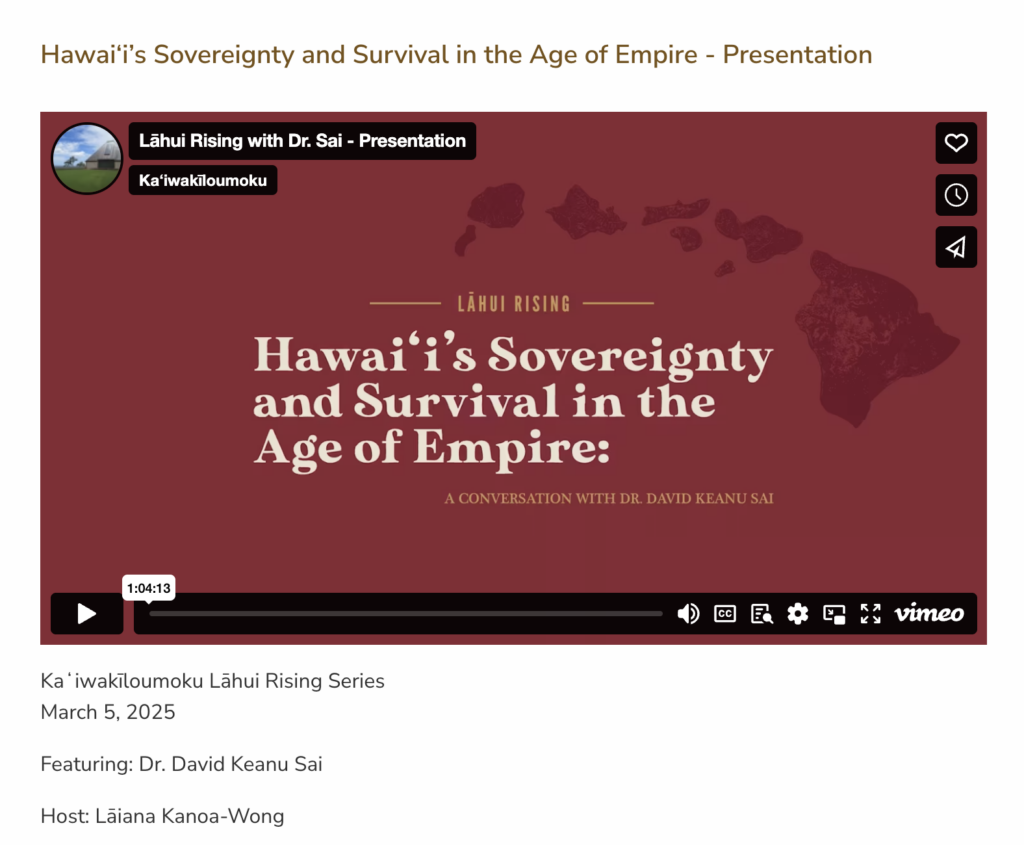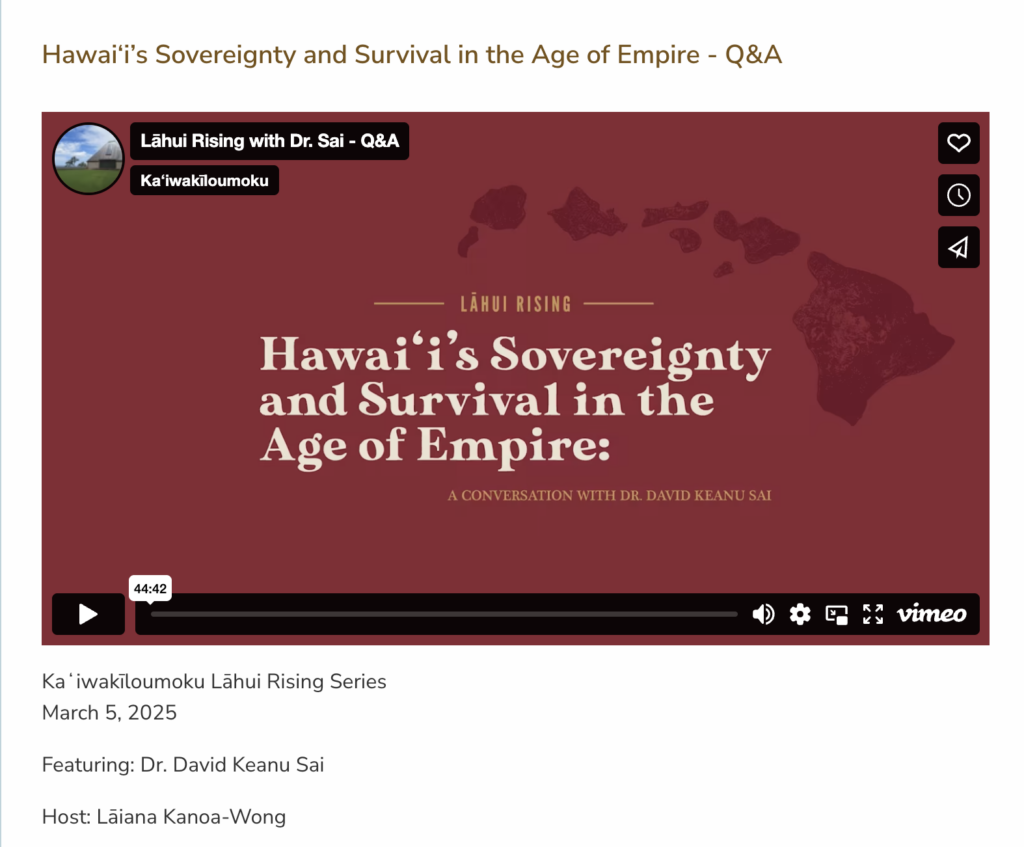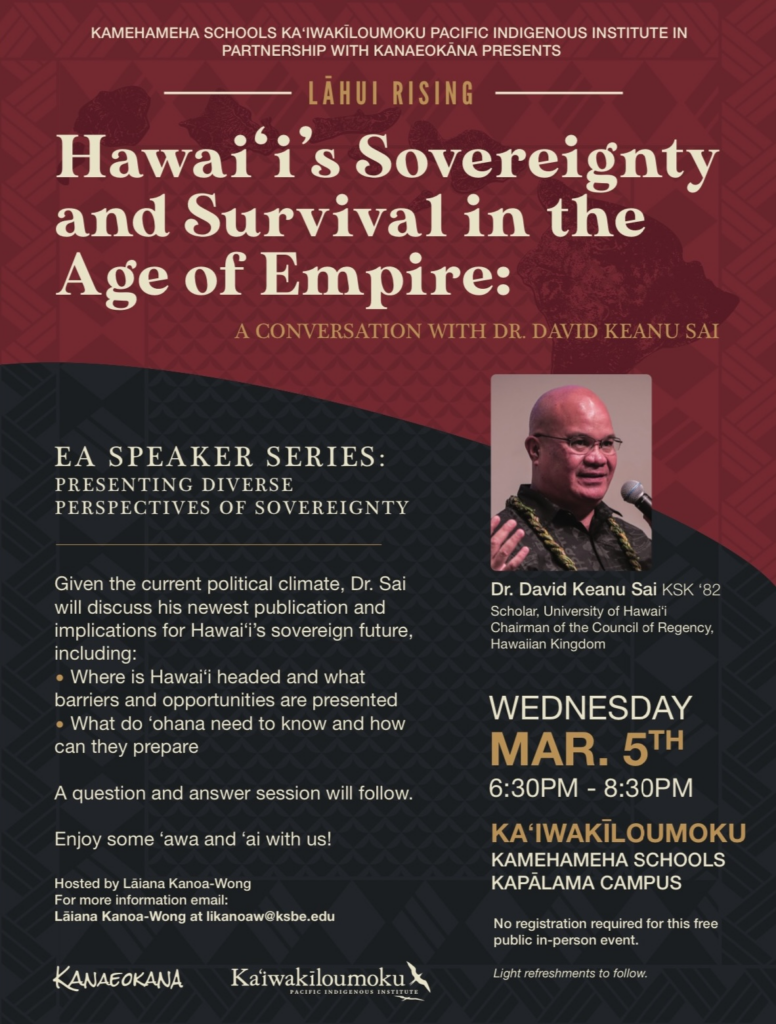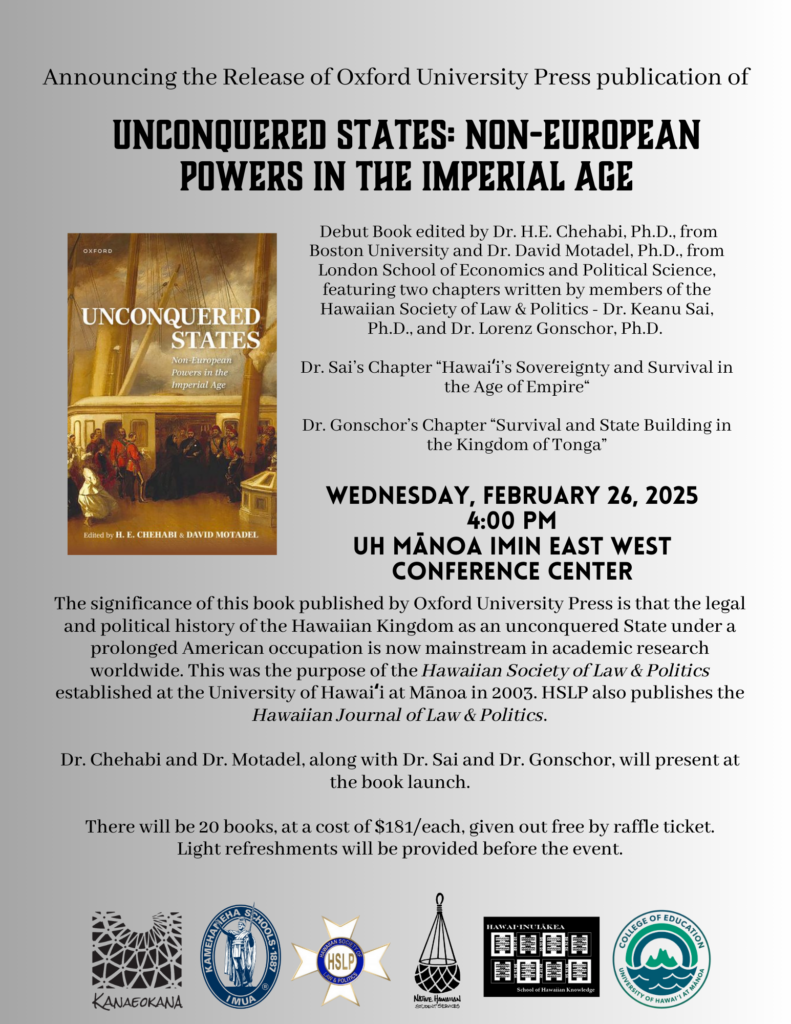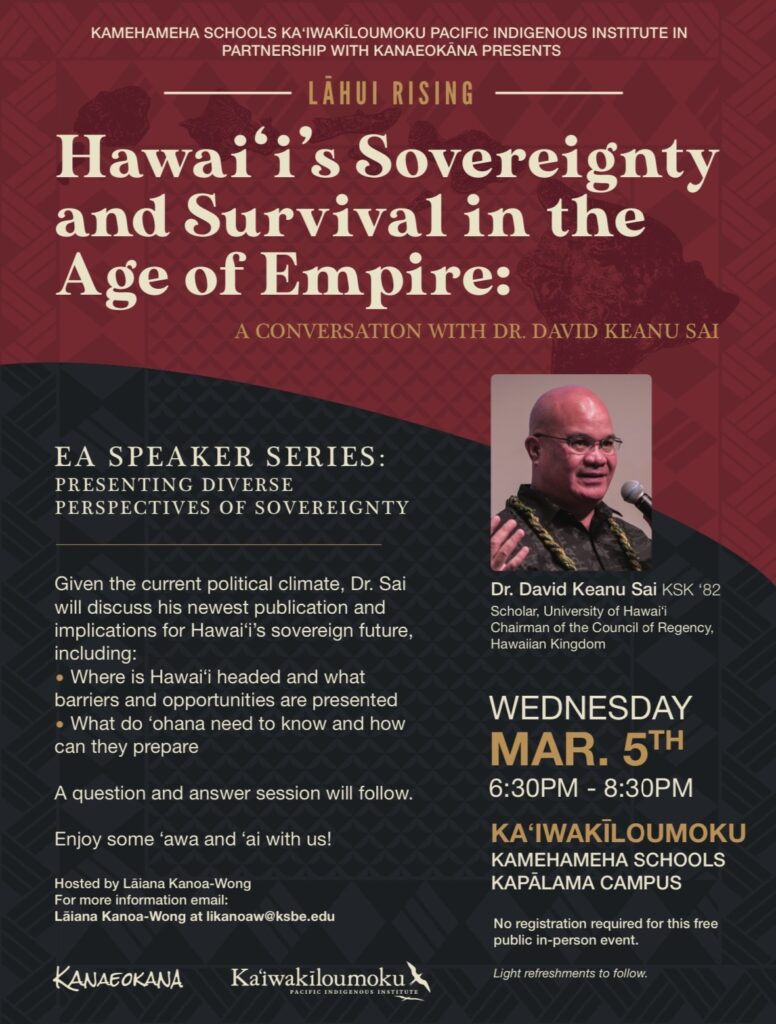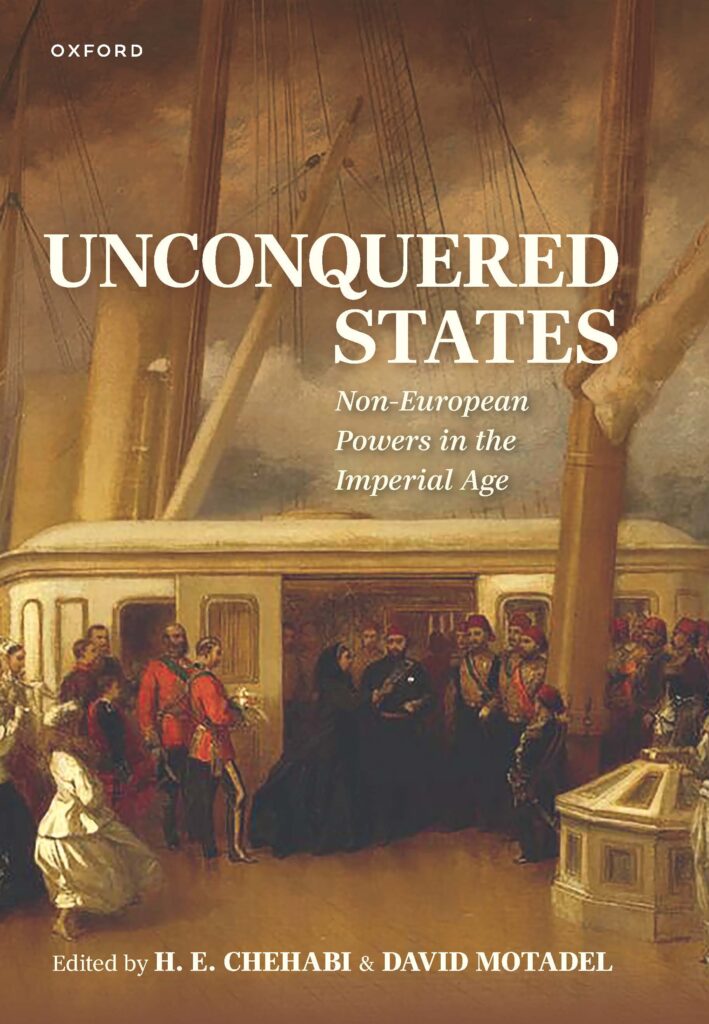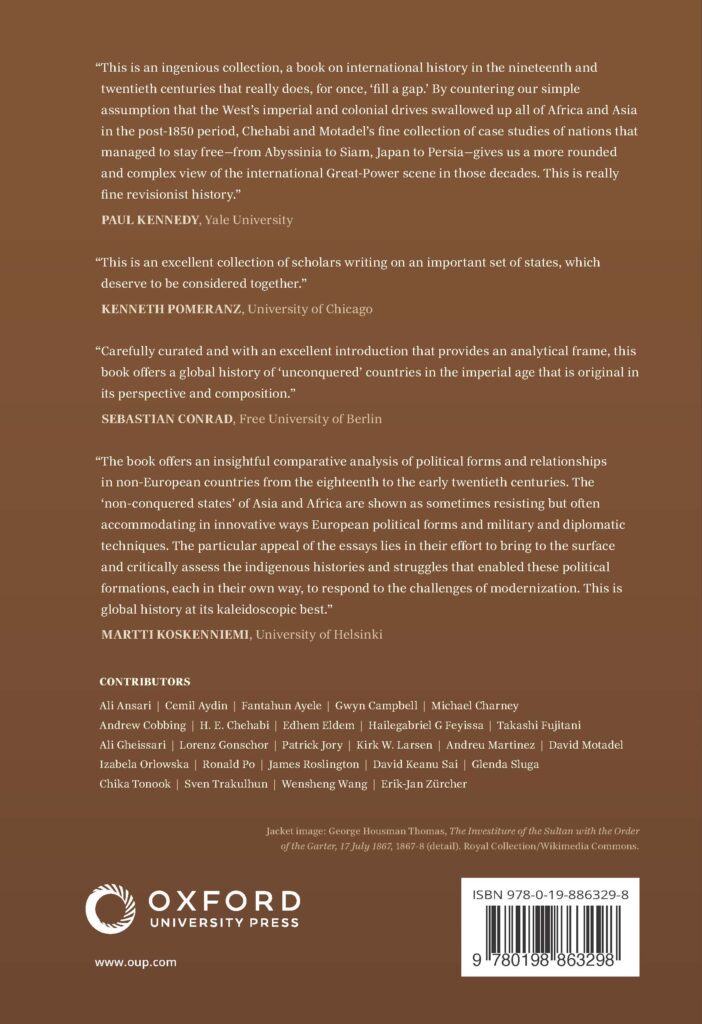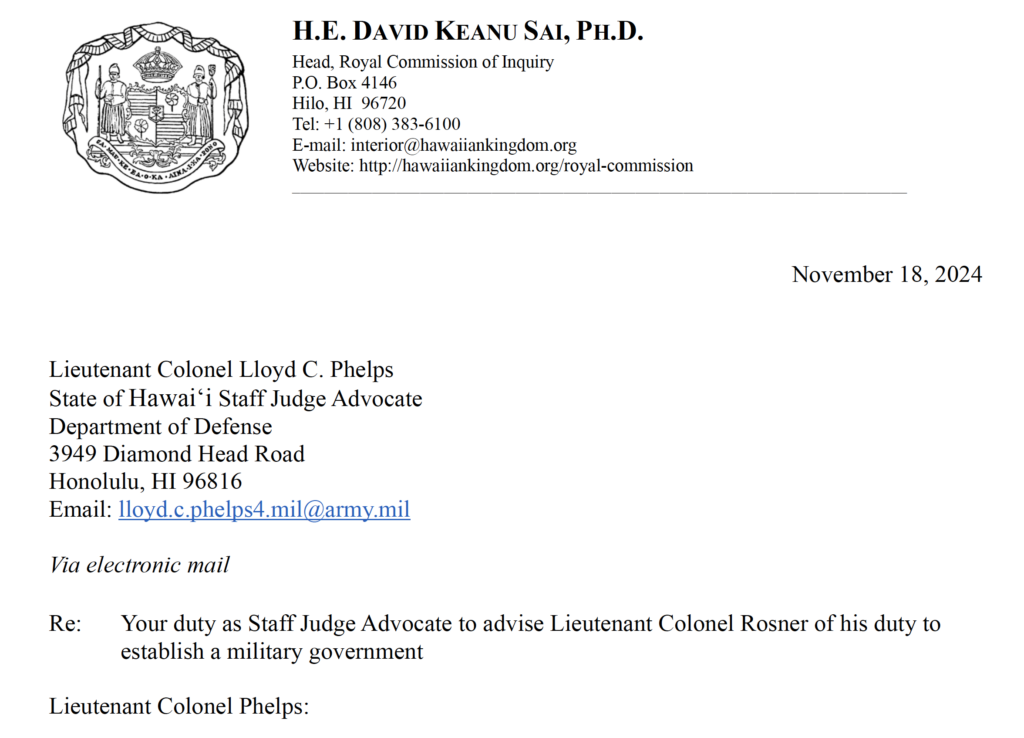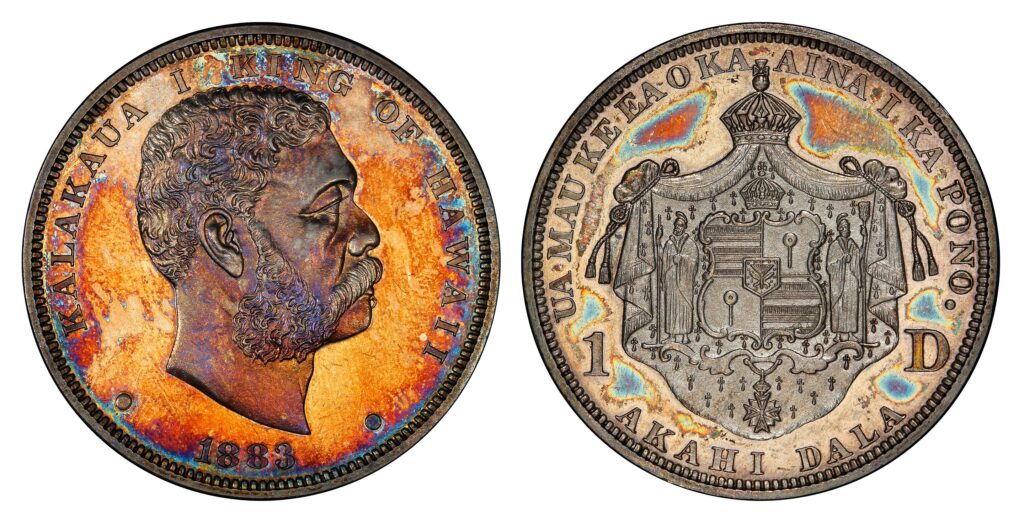As an independent State in the nineteenth century, the Hawaiian Kingdom maintained treaties with the Austro-Hungarian Empire, Belgium, Denmark, France, Germany, Great Britain, Italy, Japan, Luxembourg, Netherlands, the United Kingdoms of Sweden and Norway, Portugal, Russia, Spain, Switzerland, and the United States.
Despite the unlawful overthrow of the government of the Hawaiian Kingdom by United States forces on January 17, 1893, international law provides for the continued existence of the Hawaiian State even when the United States unilaterally annexed the Hawaiian Islands on July 7, 1898, by a congressional law during the Spanish-American War. For information of the American occupation, see chapter 21 “Hawai‘i’s Sovereignty and Survival in the Age of Empire” in Oxford University Press’ publication of Unconquered States: Non-European Powers in the Imperial Age. Because the Hawaiian Kingdom continues to exist so do its treaties.
After the American overthrow of the Hawaiian Kingdom government, States were led to believe that the Hawaiian Kingdom had ceased to exist and became a part of the United States in 1898. Shattering this narrative was the Permanent Court of Arbitration’s recognition of the Hawaiian Kingdom’s continued existence as a State and the Council of Regency as its restored government, in Larsen v. Hawaiian Kingdom, in 1999.
The 20th century ushered in new States as successors to their predecessor States where the number of States in 1893 that numbered 44 would exponentially rise to 193 States that are members of the United Nations (“UN”). These successor States arose because of the First and Second World Wars and through decolonization of former colonial and trust territories.
When a successor State is established, the question arises regarding treaties of the predecessor State with a third State and whether it is binding or not on the successor State. For example, in June of 1961, New Zealand and Great Britain entered into a treaty that concerned air services between the former and the British territories of Western Samoa and Fiji. When Western Samoa became a successor State to Great Britain on January 1, 1962, the 1961 treaty remained binding on Western Samoa after its independence from Great Britain. In 1997, Western Samoa officially changed its name to Samoa.
According to the 1978 Vienna Convention on Succession of States in respect of Treaties, Article 24 states:
1. A bilateral treaty which at the date of the succession of States was in force in respect of the territory to which the succession of States relates is considered as being in force between a newly independent State and the other State party when: (a) they expressly so agree; or (b) by reason of their conduct they are to be considered as having agreed.
2. A treaty considered as being in force under paragraph 1 applies in the relations between the newly independent State and the other State party from the date of the succession of States, unless a different intention appears from their agreement or is otherwise established.
The successor States of the Hawaiian Kingdom’s treaty partners, were not aware, at the time of their independence, that the Hawaiian Kingdom continued to exist as a State, therefore, neither the newly independent States nor the Hawaiian Kingdom could declare “within a reasonable time after the attaining of independence, that the treaty is regarded as no longer in force between them.” Until there is clarification of the successor States’ intentions, as to a common understanding with the Hawaiian Kingdom regarding the continuance in force of the Hawaiian treaty with their predecessor State, the Hawaiian Kingdom will presume the continuance in force of its treaties with the successor States. The majority of Member States of the United Nations are successor States to treaties with the Hawaiian Kingdom.
The Hawaiian Kingdom has treaties with 154 Member States of the United Nations. 14 treaties with original States and 140 treaties with their successor States.
HAWAIIAN-AMERICAN TREATY: Marshall Islands, Micronesia, Palau, and the Philippines.
HAWAIIAN-AUSTRO-HUNGARIAN TREATY: Austria and Hungary
HAWAIIAN-BELGIAN TREATY: Burundi, Congo, Democratic Republic of the Congo, and Rwanda.
HAWAIIAN-BRITISH TREATY: Afghanistan, Antigua and Barbuda, Australia, The Bahamas, Bahrain, Bangladesh, Barbados, Belize, Bhutan, Botswana, Brunei Darussalam, Cameroon, Canada, Cyprus, Egypt, Eswatini, Fiji, Gambia, Ghana, Grenada, Guyana, India, Iraq, Ireland, Israel, Jamaica, Jordan, Kenya, Kiribati, Kuwait, Lesotho, Malawi, Malaysia, Maldives, Malta, Mauritius, Myanmar, Namibia, Nauru, Nepal, New Zealand, Nigeria, Pakistan, Papua New Guinea, Qatar, Saint Kitts and Nevis, Saint Lucia, Saint Vincent and the Grenadines, Samoa, Seychelles, Sierra Leone, Singapore, Solomon Islands, Somalia, South Africa, South Sudan, Sri Lanka, Sudan, Tonga, Trinidad and Tobago, Tuvalu, Uganda, United Arab Emirates, United Republic of Tanzania, Vanuatu, Yemen, Zambia, and Zimbabwe.
HAWAIIAN-DUTCH TREATY: Indonesia and Suriname.
HAWAIIAN-FRENCH TREATY: Algeria, Benin, Burkina Faso, Cambodia, Cameroon, Central African Republic, Chad, Comoros, Côte d’Ivoire, Djibouti, Gabon, Guinea, Lao People’s Democratic Republic, Lebanon, Madagascar, Mali, Mauritania, Morocco, Niger, Senegal, Syrian Arab Republic, Togo, Tunisia, Vanuatu, and Viet Nam.
HAWAIIAN-ITALIAN TREATY: Libya and Somalia.
HAWAIIAN-JAPANESE TREATY: Democratic People’s Republic of Korea, and the Republic of Korea.
HAWAIIAN-PORTUGUESE TREATY: Angola, Cabo Verde, Guinea-Bissau, Mozambique, Sao Tome and Principe, and Timor-Leste.
HAWAIIAN-RUSSIAN TREATY: Armenia, Azerbaijan, Belarus, Bosnia and Herzegovina, Croatia, Estonia, Georgia, Kazakhstan, Kyrgyzstan, Latvia, Lithuania, Mongolia, Montenegro, North Macedonia, Republic of Moldova, Slovenia, Tajikistan, Turkmenistan, Ukraine, and Uzbekistan.
HAWAIIAN-SPANISH TREATY: Cuba and Equatorial Guinea.
HAWAIIAN-SWEDISH-NORWEGIAN TREATY: Sweden and Norway.

